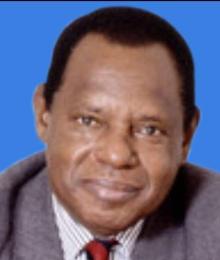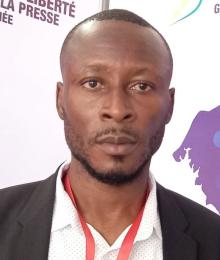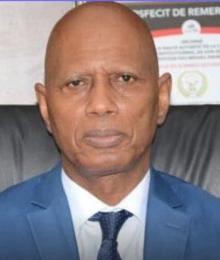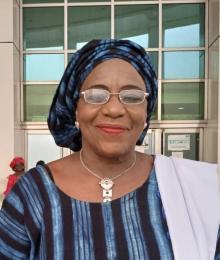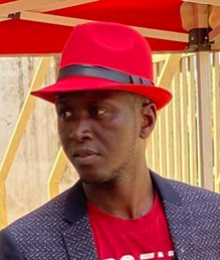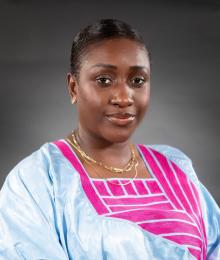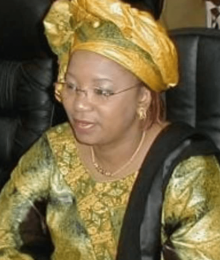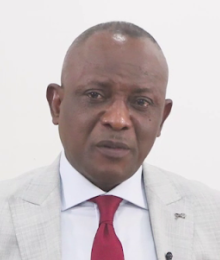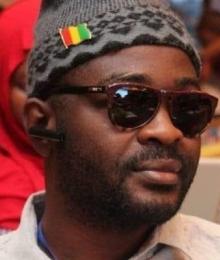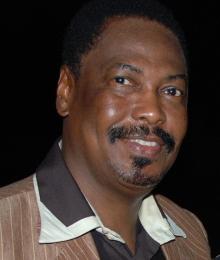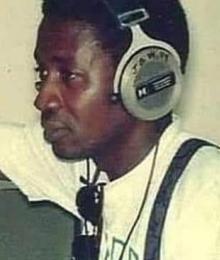
Aly Badara Diakité, commonly known as ABD, was an iconic figure in journalism and radio broadcasting in Guinea. Born on January 2, 1954, in Adjamé, Côte d'Ivoire, and passing away on May 4, 1996, in Conakry, ABD left a lasting mark on the Guinean media landscape with his charismatic voice, unique hosting style, and encyclopedic knowledge of African music. After a career as a teacher and a correspondent for RTI in Côte d'Ivoire, he joined the Guinean Radio and Television (RTG) in 1984, where he became renowned for his flagship program "Africa Danse".
ABD was known for his ability to make culture accessible to all while maintaining a high standard of excellence. His influence extended beyond the airwaves, as he was also involved in promoting artists through the agency Conakry Magakhoui. His untimely death at the age of 42 left a void in the world of African radio, but his legacy continues to inspire new generations of journalists and broadcasters.
Introduction
Aly Badara Diakité, better known by his initials ABD, was an iconic figure in journalism and radio broadcasting in Guinea. Born on January 2, 1954, in Adjamé, Côte d'Ivoire, and passing away on May 4, 1996, in Conakry, Guinea, ABD left an indelible mark on the Guinean media landscape. His charismatic voice, encyclopedic knowledge, and unique hosting style made him a true radio legend, admired by millions of listeners across West Africa.
Early Life and Education
Born in the popular neighborhood of Adjamé in Abidjan, Aly Badara Diakité grew up between Côte d'Ivoire and Guinea. This dual cultural background undoubtedly shaped his open-mindedness and intellectual curiosity. He completed his education in both countries, excelling in languages and history.
Passionate about African literature and culture from an early age, ABD pursued higher education, leading him to become a French and history teacher in Abidjan. This solid academic background provided the foundation for his future media career, allowing him to master the French language and gain a deep understanding of the history and culture of the continent.
Journalistic Career
In Côte d'Ivoire
Aly Badara Diakité's media career began in Côte d'Ivoire, where he became a correspondent for the Ivorian Radio and Television Broadcasting (RTI) in Bouaké. This experience allowed him to familiarize himself with journalism techniques and the world of radio.
During this period, he met Roger Fulgence Kouassi, a prominent figure in Ivorian journalism. Often invited by Kouassi on his shows, ABD was heavily influenced by Kouassi's style and professionalism. This collaboration played a crucial role in shaping his own radio personality.
In Guinea
In 1984, Aly Badara Diakité returned to Guinea, his home country. He joined the Guinean Radio and Television (RTG) with the support of Justin Morel Junior, the then-General Director of RTG. Recognizing ABD's talent, Morel tested him and soon gave him the opportunity to be on the national airwaves.
ABD began his radio journey with the programs "Contact Culture" aired on Tuesdays at 2:00 PM and "Podium" broadcasted on Sundays at 7:00 PM. These initial experiences helped him refine his style and become well-known to the Guinean audience.
Radio Shows
It was with the show "Africa Danse", broadcast every Saturday at 9:00 AM, that Aly Badara Diakité achieved widespread recognition. This flagship program quickly became a must-listen for African music enthusiasts. ABD showcased his exceptional hosting skills, blending his encyclopedic musical knowledge, humor, and unique presenting style.
On "Africa Danse", ABD offered a comprehensive overview of contemporary African music, from Congolese soukous to Senegalese mbalax, Ghanaian highlife, and Guinean rumba. He did not merely play songs; he contextualized them, explaining their origins and impact on the African and international music scene.
Another memorable program by ABD was "Conakry by Night", co-hosted with guitarist Jean Baptiste Williams. This late-night show allowed ABD to showcase another facet of his talent, focusing more on festive atmospheres, album presentations, and wedding ceremonies.
Success
Aly Badara Diakité's success was phenomenal. In just a few years, he became the most-listened-to voice in Guinea. His distinctive style, blending erudition and accessibility, captivated a broad audience. ABD had a unique talent for making culture accessible to all while maintaining a high level of rigor.
His deep knowledge of African music and his network of contacts within the artistic community made him a leading reference. Many artists owe their popularity to ABD, who had a keen eye for discovering and promoting emerging talents.
Beyond his work on the radio, ABD was also involved in artistic promotion through the agency Conakry Magakhoui, alongside Fodéba Isto Keira and Alia Camara. This agency played a significant role in launching and supporting many Guinean artists.
Awards and Recognitions
Although no specific awards or honors are documented, it is undeniable that Aly Badara Diakité earned the respect of his peers and the admiration of his audience. His impact on the Guinean media and cultural scene was so significant that he is considered a radio legend, a reference for future generations of hosts and journalists.
Death and Tribute
On May 4, 1996, Aly Badara Diakité passed away at the CHU Ignace Deen in Conakry at the age of 42 after a long illness. His premature death plunged Guinea into mourning and sent shockwaves throughout the country.
The announcement of his death, made the following day by journalist Sékou Mady Traoré during the 9:00 AM news broadcast, remains etched in collective memory:
"All that stands shall fall, all that shines shall fade, all that beats shall stop! Death is in life. Life is in death."
Tributes poured in from across West Africa, highlighting ABD's influence beyond the borders of Guinea. Artists, journalists, political figures, and ordinary listeners honored the memory of a man who revolutionized radio broadcasting in Africa.
Former colleagues like Amadou Diouldé Diallo remembered a generous and talented man, marked by professionalism and passion for African culture. Diallo's personal story of ABD saving his life during a road accident illustrates ABD's kindness and sense of duty beyond his work in radio.
Conclusion
Aly Badara Diakité, known as ABD to millions of listeners, will be remembered as one of the most influential voices in Guinean and West African radio. His distinctive style, blending encyclopedic knowledge with accessibility, revolutionized radio broadcasting in West Africa.
More than just a host, ABD was a true cultural ambassador, bridging the gap between artists and the public and connecting various African musical traditions. His influence on the Guinean media and cultural scene is undeniable and continues to resonate today, more than two decades after his passing.
ABD's career, though short, perfectly illustrates the power of radio as a tool for cultural dissemination and social cohesion. His legacy still inspires many young journalists and broadcasters today, who see him as a model of professionalism, intellectual curiosity, and dedication to African culture.
Aly Badara Diakité reminds us that true success in journalism and broadcasting is not merely about fame, but the ability to touch and enrich the lives of listeners. His journey remains a testament to excellence, perseverance, and passion, inspiring audiences far beyond the borders of Guinea.











